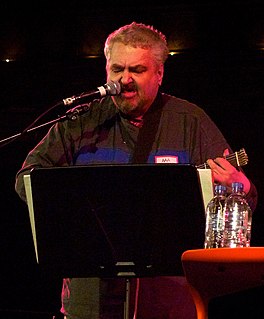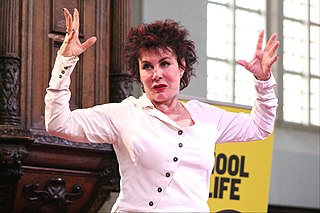A Quote by Mark Haddon
I suffer depression only in the sense that I am a writer. We don't have proper jobs to go to. We are on our own all day. Show me a writer who doesn't get depressed: who has a completely stable mood. They'd be a garage mechanic or something.
Related Quotes
I never felt like that before. Maybe it could be depression, like you get. I can understand how you suffer now when you're depressed; I always thought you liked it and I thought you could have snapped yourself out any time, if not alone then my means of the mood organ. But when you get that depressed you don't care. Apathy, because you've lose a sense of worth. It doesn't matter whether you feel better because you have no worth.
One of the manifestations of depression for me is that I lose my will. And I thereby lose my ability to focus. I don't think I'll ever have the day-to-day consistency in my performance that something like This American Life has. If I'm not depressed and I'm on and I can focus and I can think through something hard and without interruption and without existential emptiness that comes from depression, that gives me - not mania. But I exalt. I exalt in not being depressed.
As a reader, when the writer gets sentimental, you drift, because there's something fishy going on there. You recognize a moment that's largely about the writer and the writer's own need to believe in something that might not in fact exist. As a reader, you think, 'Where did the story go? Where did the person I'm reading about go?'
A lot of the despair we feel watching the news every day flows from our sense of helplessness, and as a fiction writer you get to control things, if only on the page. You get to run the show. You can right wrongs, bring departed loved ones back to life, even take vengeance on God, if that's your thing.
Oh, I love labels, as long as they are numerous. I'm an American writer. I'm a Nigerian writer. I'm a Nigerian American writer. I'm an African writer. I'm a Yoruba writer. I'm an African American writer. I'm a writer who's been strongly influenced by European precedents. I'm a writer who feels very close to literary practice in India - which I go to quite often - and to writers over there.
We’re all pros already. 1) We show up every day 2) We show up no matter what 3) We stay on the job all day 4) We are committed over the long haul 5) The stakes for us are high and real 6) We accept remuneration for our labor 7) We do not overidentify with our jobs 8 ) We master the technique of our jobs 9) We have a sense of humor about our jobs 10) We receive praise or blame in the real world
I say "on principle" [regarding 'lesbian writer'] because whenever you get one of your minority labels applied, like "Irish Writer," "Canadian Writer," "Woman Writer," "Lesbian Writer" - any of those categories - you always slightly wince because you're afraid that people will think that means you're only going to write about Canada or Ireland, you know.






































